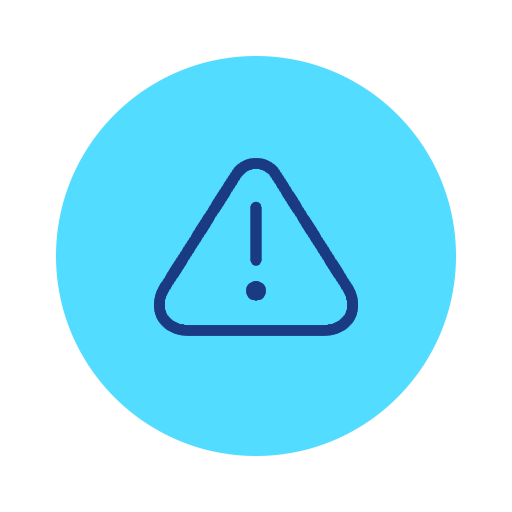PRESCRIPTION MEDICATION
Escitalopram/Lexapro
TYPE OF MEDICATION:
Escitalopram is a selective serotonin reuptake inhibitor (SSRI), a class of antidepressants that works by increasing serotonin levels in the brain. It is commonly prescribed for mood and anxiety disorders and is known for being well-tolerated with fewer side effects compared to older antidepressants.
TREATMENT FOR:
Major depressive disorder (MDD), generalized anxiety disorder (GAD), off-label use for panic disorder, social anxiety disorder, obsessive-compulsive disorder (OCD), premenstrual dysphoric disorder (PMDD), post-traumatic stress disorder (PTSD)
PRESCRIPTION MEDICATION
Escitalopram/Lexapro
TYPE OF MEDICATION:
Escitalopram is a selective serotonin reuptake inhibitor (SSRI), a class of antidepressants that works by increasing serotonin levels in the brain. It is commonly prescribed for mood and anxiety disorders and is known for being well-tolerated with fewer side effects compared to older antidepressants.
TREATMENT FOR:
Major depressive disorder (MDD), generalized anxiety disorder (GAD), off-label use for panic disorder, social anxiety disorder, obsessive-compulsive disorder (OCD), premenstrual dysphoric disorder (PMDD), post-traumatic stress disorder (PTSD)

Escitalopram/Lexapro
How it works, what it treats, side effects, and more.
Escitalopram/Lexapro
How it works, what it treats, side effects, and more.

At Platinum Psychiatry, our clinicians focus on prescribing the right medication tailored to your needs. As part of your treatment, they may recommend escitalopram and will walk you through how it works while addressing any questions you have.
In the meantime, here’s some general information about this medication. If you have any additional questions, don’t hesitate to reach out.

At Platinum Psychiatry, our clinicians focus on prescribing the right medication tailored to your needs. As part of your treatment, they may recommend escitalopram and will walk you through how it works while addressing any questions you have.
In the meantime, here’s some general information about this medication. If you have any additional questions, don’t hesitate to reach out.
What is escitalopram/lexapro, and how does it work?
Escitalopram is an SSRI antidepressant that works by blocking serotonin reuptake, which increases serotonin levels in the brain. Serotonin is a neurotransmitter that regulates mood, emotions, and anxiety. By enhancing serotonin availability, escitalopram helps stabilize mood and reduce symptoms of depression and anxiety.
What conditions does escitalopram treat?
Escitalopram is FDA-approved for treating major depressive disorder (MDD) and generalized anxiety disorder (GAD). It is also commonly prescribed off-label for panic disorder, social anxiety disorder, OCD, PMDD, and PTSD.
What symptoms can escitalopram help reduce?
- Persistent sadness, low mood, or hopelessness
- Excessive worry or anxiety
- Panic attacks and social anxiety
- Irritability and mood swings
- Trouble sleeping due to anxiety
- Obsessive thoughts and compulsive behaviors (OCD)
Will escitalopram work for me?
Escitalopram is one of the most commonly prescribed SSRIs due to its effectiveness and lower risk of side effects compared to other antidepressants. However, individual responses vary, and it may take 4-6 weeks to see full benefits.
How long do people typically take escitalopram?
- Depression and anxiety disorders – often taken for at least 6-12 months; long-term use may be recommended for recurrent cases.
- Panic disorder, OCD, PTSD – duration varies based on symptom severity and treatment response.
How effective is escitalopram?
Will escitalopram change my personality?
Are there any side effects associated with sertaline?
Does sertaline have withdrawal symptoms?
Can I take sertaline while pregnant or while nursing?
Is sertaline addictive?
What does the FDA say about sertaline?
What is escitalopram/lexapro, and how does it work?
Escitalopram is an SSRI antidepressant that works by blocking serotonin reuptake, which increases serotonin levels in the brain. Serotonin is a neurotransmitter that regulates mood, emotions, and anxiety. By enhancing serotonin availability, escitalopram helps stabilize mood and reduce symptoms of depression and anxiety.
What conditions does escitalopram treat?
Escitalopram is FDA-approved for treating major depressive disorder (MDD) and generalized anxiety disorder (GAD). It is also commonly prescribed off-label for panic disorder, social anxiety disorder, OCD, PMDD, and PTSD.
What symptoms can escitalopram help reduce?
- Persistent sadness, low mood, or hopelessness
- Excessive worry or anxiety
- Panic attacks and social anxiety
- Irritability and mood swings
- Trouble sleeping due to anxiety
- Obsessive thoughts and compulsive behaviors (OCD)
Will escitalopram work for me?
Escitalopram is one of the most commonly prescribed SSRIs due to its effectiveness and lower risk of side effects compared to other antidepressants. However, individual responses vary, and it may take 4-6 weeks to see full benefits.
How long do people typically take escitalopram?
- Depression and anxiety disorders – often taken for at least 6-12 months; long-term use may be recommended for recurrent cases.
- Panic disorder, OCD, PTSD – duration varies based on symptom severity and treatment response.
How effective is escitalopram?
Will escitalopram change my personality?
Are there any side effects associated with escitalopram?
Does escitalopram have withdrawal symptoms?
Can I take escitalopram while pregnant or while nursing?
Is escitalopram addictive?
What does the FDA say about escitalopram?
MEDICATION MANAGEMENT
The right prescriptions, tailored to you
Meet 1:1 with your psychiatrist
Schedule a 60 minute virtual assessment with your psychiatrist to thoroughly discuss your symptoms.
Get a prescription
If it’s determined that medication is necessary, your psychiatrist will prescribe based on your unique needs.
Optimize your treatment
Your pychiatrist will track your progress and meet with you regularly to adjust your treatment if need be.
MEDICATION MANAGEMENT WITH PLATINUM PSYCHIATRY
The right prescriptions, tailored specifically to you.
Meet 1:1 with your psychiatrist
Schedule a 60 minute virtual assessment with your psychiatrist to thoroughly discuss your symptoms.
Get a prescription
If it’s determined that medication is necessary, your psychiatrist will prescribe based on your unique needs.
Optimize your treatment
Your pychiatrist will track your progress and meet with you regularly to adjust your treatment if need be.
TRANSpaRENT PRICING
Get the high quality care you deserve
Because premium mental health care should be accessible to everyone.
See other medications we manage.
No contracts. Cancel anytime.
TRANSpaRENT PRICING
Get the high quality care you deserve for just $89/month
Because premium mental health care should be accessible to everyone.
See other medications we manage.
No contracts. Cancel anytime.
 741-741
741-741
If you’re in emotional distress, text HOME to connect with a counselor.
 988
988
Call or text the 988 Suicide & Crisis Lifeline for 24/7 emotional support.
 911
911
If you’re having a medical or mental health emergency, call 911 or visit your local ER.
